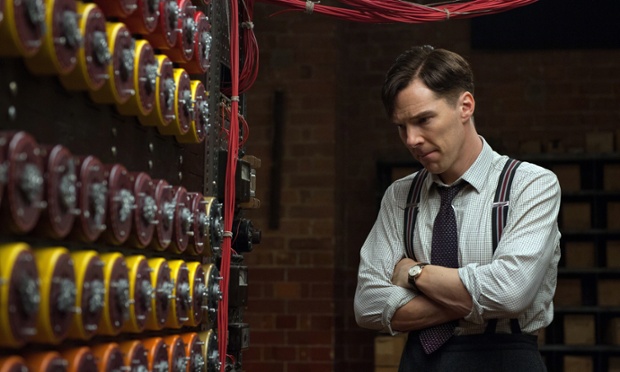
“Can a machine think?”
That is what Alan Turing (Benedict Cumberbatch) is asked by the detective (Rory Kinnear) questioning him in The Imitation Game (Tyldum, 2014). An interesting question, it has nothing to do with the charge of homosexual acts for which he has been arrested, but has everything to do with his research and work in the field of mathematics and computer science. Turing is considered a father of the field of computer science, particularly in the area of artificial intelligence, and while his contributions to AI are not the focus of the film, the answer to this posed question—at least as he gives it in the movie—certainly is.
Turing answers the detective with an observation: that different humans think differently (in terms of likes, dislikes, beliefs, etc.), so then, machines can think, just differently than humans. This idea is used as a metaphor to understand and explore the human condition. One could very quickly interpret this as a message about homosexual relationships, but if you look deeper there’s really more to it than that. Although Turing’s homosexuality plays a role in the social tensions and eventually results in his arrest, it is not the driving theme of this movie—which is ultimately focused on the nature of interpersonal conflict itself.
The Imitation Game is not a very accurate portrayal of the real Alan Turing, particularly in how it depicts Turing having an autism-spectrum-esque social handicap that is at the source of nearly all conflicts with his coworkers and classmates. But the movie uses this imagining of his genius for a purpose. In a flashback to Turing’s school days, his friend Christopher (Jack Bannon) explains to him cryptography. Turing reflects that cryptography is akin to talking to other people. “When people talk to each other, they never say what they mean. They say something else and you’re expected to know just what they mean.” Every interaction between human beings is like decrypting a secret message. And when those messages get decrypted poorly (in other words, as we think differently) conflicts happen. Turing is absolutely brilliant, but in this movie his mind works in a way that is very different than his classmates and colleagues, and misunderstandings and bullying ensue.
The depiction of Alan Turing in this movie is that of someone so very different from most other minds with which he came in contact, and it is a story of both his and their struggle to coexist and cooperate. Using the metaphor of the question “can a machine think?” to structure its theme, when the credits of The Imitation Game roll we are forced to face that question as it applies in our own lives. “Is this person—who drives me crazy, who does not understand simple things I am trying to say to them and who is constantly antagonizing me—is this person at all intelligent? Can this person think? Is he or she, in fact, a human-being whose life is valuable?” And I would hope that we could sit down to hear their stories, before the relationship or the person’s life comes to an end, and answer that with an affirmative.


 RSS Feed
RSS Feed
